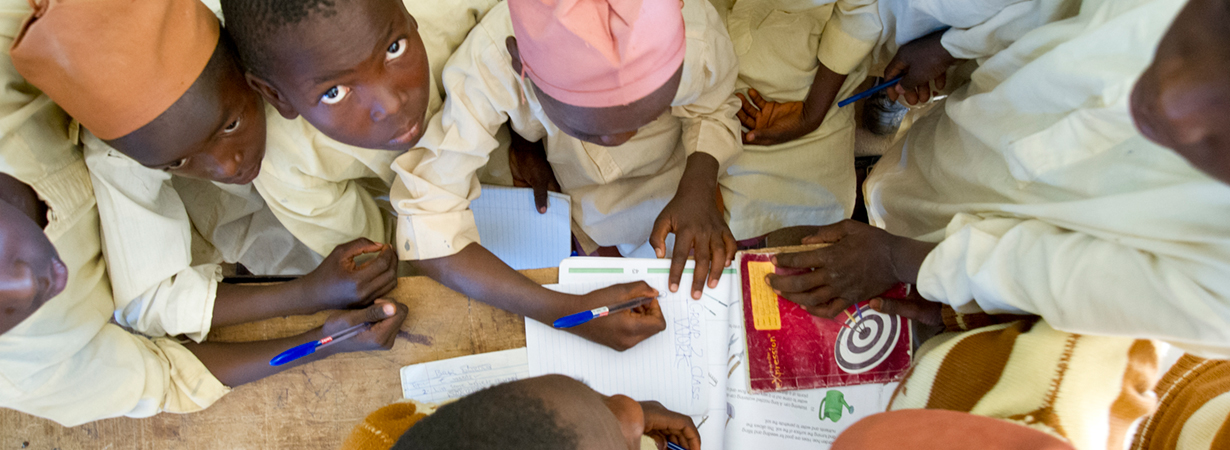
The Northern Education Initiative Plus emphasizes two critical education issues – access to education and improved quality of education in the primary grades with a focus on early grade reading. Our goal with access is to ensure that more than 500,000 out-of-school-children have access to quality, safe education options that allow them acquire basic academic and life skills while strengthening government systems to reach even more children.
Working with federal and state government structures such as the National Mass Education Commission, State Agency for Mass Education and State Universal Basic Education Boards , the project demonstrates how the states of Bauchi and Sokoto can become more effective to increase access to education for children, especially those marginalized – girl-children, the poor and children with disabilities.
The project is establishing more than 11,000 Non-Formal Learning Centers, Adolescent Girls learning Centers and Youth Learning Centers where quality literacy, numeracy and life skills are taught by trained learning facilitators and are easily accessed by out-of-school-children.
Supporting children’s learning
The Initiative develops teaching and learning materials that promote education quality, access, conflict sensitivity and particularly early grade reading. The long term aim is that State Ministries of Education and supporting agencies fully assume responsibility for the provision of early grade reading teaching and learning materials to all out-of-school-children in the target local governments.
Beyond providing different education options, the project supports Non-Formal Learning Centers to achieve quality and safety standards and benchmarks to promote environments that are healthy, safe, protected and gender-sensitive.
This is achieved by using data from targeted research undertakings such as the Community Education and Conflict Assessments that aims to identify and reduce barriers to access to school and improve factors influencing retention.
The results of this research feed into policy review and institutional gap analyses. An accreditation policy will be used to address needed revisions in the Non-Formal Learning Centers registration process.
Dialoguing for change
The project also supports dialogues to regularly review the status of the states in addressing and improving school access and safety, drawing from reports from the Local Government Education Authorities and engaging a broad spectrum of stakeholders.
These concerted efforts will lead to strengthened government systems and increase the number of students enrolled in appropriate, relevant, approved educational options, especially girls and out-of-school-children in Bauchi and Sokoto states and a third state yet to be determined.

